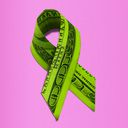Hospitals' massive cancer drug markups

The prices that private insurers agree to pay hospitals for cancer drugs are often at least double what the hospital paid to acquire the drugs, according to a new study in JAMA Internal Medicine.
Why it matters: The blame for high drug prices goes well beyond drug manufacturers, and is ultimately borne by patients through higher premiums and out-of-pocket costs.
The big picture: Patients generally either get their prescriptions drugs from pharmacies or administered directly in a hospital or doctor's office.
- Both pathways have complicated supply chains, meaning there are multiple middlemen between drug manufacturers and patients. Pharmacy benefit managers, for example, have come under fire in recent years for their alleged role in higher prices at the pharmacy counter.
- But the JAMA study published yesterday suggests that hospitals also have a huge role in what patients and insurers pay, at least in the oncology space, where treatment courses can cost hundreds of thousands of dollars.
- "This supply chain is not very friendly to patients, because pharmaceutical manufacturers set prices at levels that can be quite high, and ultimately prices increase down the chain and patients are left footing the bill," said Vinay Rathi, a physician and health policy researcher at Massachusetts Eye and Ear and one of the study's authors.
Details: The study analyzed the prices of 25 top-selling cancer therapies at 61 National Cancer Institute-designated cancer centers, and looked at how those prices compared to acquisition costs.
- Acquisition costs were estimated by using a drug's average sales price — which takes into account all discounts and rebates — unless the hospital participated in the federal 340B program, which requires drugmakers to give discounts to certain hospitals. In those hospitals, the study estimated acquisition costs were 65.3% of the average sales price using a recent CMS analysis.
- Medicare reimburses hospitals by paying a drug's average sales price plus 6%, or at hospitals participating in the 340B program, average sales price minus 22.5%.
What they found: Median price markups ranged 118% to 634% above the estimated acquisition cost. Prices varied widely between cancer centers and even between payers within the same center.
- Put another way, for every single drug included in the study, the median hospital negotiated price was at least double its acquisition cost.
- That means private insurers are paying much more for the administered drugs than Medicare is.
The other side: Hospitals may be using profit from cancer drugs to subsidize other lines of business that are less lucrative, like research and development that isn't federally funded or providing uncompensated care.
- "The question is, is this really the right way to do it? Is using profits from cancer centers the right way to cross subsidize a lot of other things hospitals may do?" Rathi said.
- "The fact is cancer drugs are extremely expensive drugs whose prices are set and continually increased at the sole discretion of pharmaceutical companies," said Aaron Wesolowski, the American Hospital Association's vice president of policy research, analytics and strategy, adding some of the treatments are put in limited distribution or have other supply chain issues.
Between the lines: The study used data made public due to the Trump administration's price transparency regulation, which took effect last year. The rule requires hospitals to disclose payer-specific prices for drugs.
- Less than half of the cancer centers included in the study disclosed private payer–specific prices for at least one of the 25 cancer therapies analyzed.
The bottom line: "Hospitals may earn greater revenue per unit from cancer therapies than the pharmaceutical companies that manufactured them," the study's authors conclude.
- "Although there are disagreements about whether the resource-intensive process of drug development justifies high prices set by pharmaceutical companies, hospitals that administer cancer drugs and inflate their prices do not create additional value."